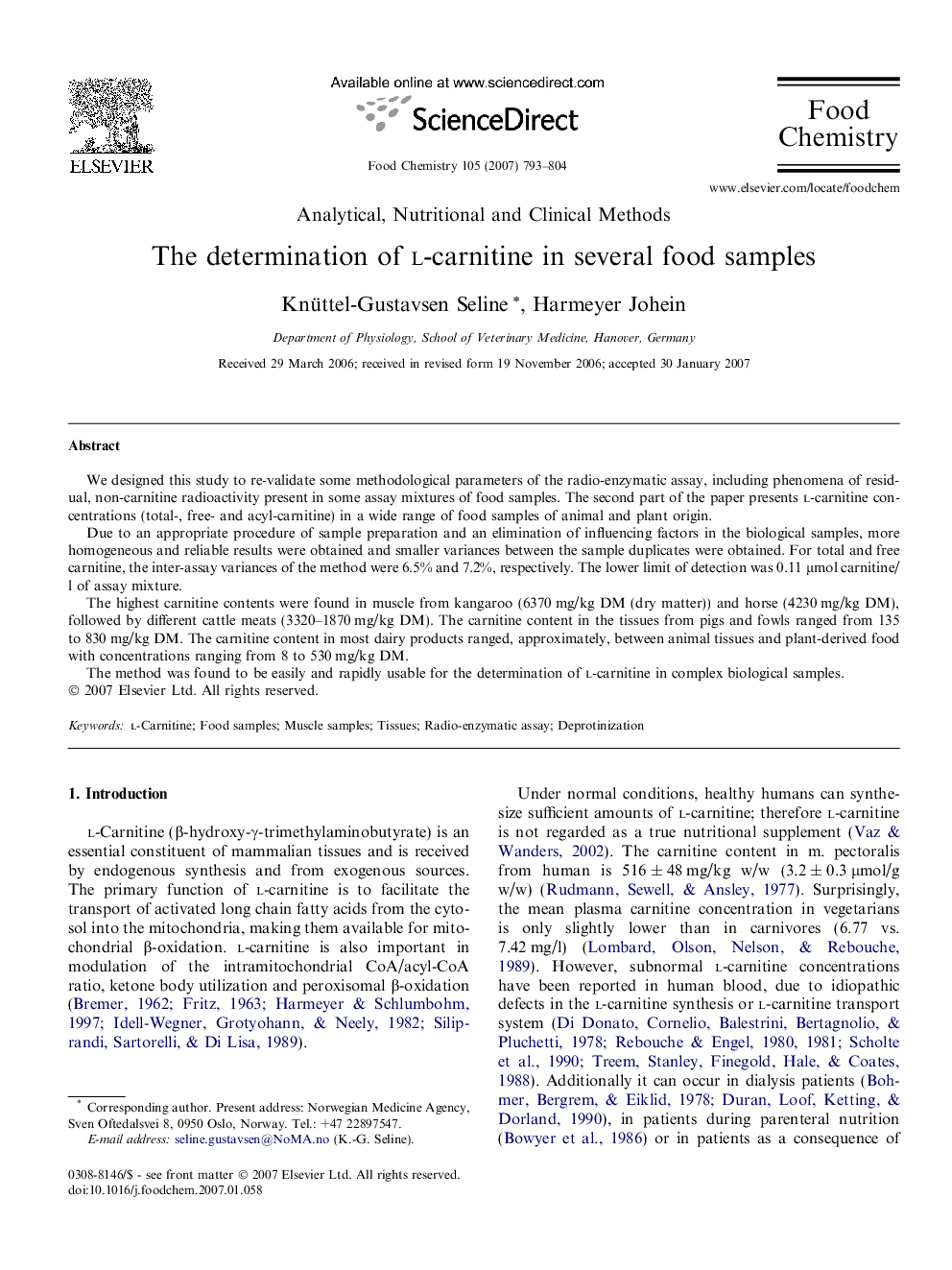| Article ID | Journal | Published Year | Pages | File Type |
|---|---|---|---|---|
| 1189550 | Food Chemistry | 2007 | 12 Pages |
We designed this study to re-validate some methodological parameters of the radio-enzymatic assay, including phenomena of residual, non-carnitine radioactivity present in some assay mixtures of food samples. The second part of the paper presents l-carnitine concentrations (total-, free- and acyl-carnitine) in a wide range of food samples of animal and plant origin.Due to an appropriate procedure of sample preparation and an elimination of influencing factors in the biological samples, more homogeneous and reliable results were obtained and smaller variances between the sample duplicates were obtained. For total and free carnitine, the inter-assay variances of the method were 6.5% and 7.2%, respectively. The lower limit of detection was 0.11 μmol carnitine/l of assay mixture.The highest carnitine contents were found in muscle from kangaroo (6370 mg/kg DM (dry matter)) and horse (4230 mg/kg DM), followed by different cattle meats (3320–1870 mg/kg DM). The carnitine content in the tissues from pigs and fowls ranged from 135 to 830 mg/kg DM. The carnitine content in most dairy products ranged, approximately, between animal tissues and plant-derived food with concentrations ranging from 8 to 530 mg/kg DM.The method was found to be easily and rapidly usable for the determination of l-carnitine in complex biological samples.
